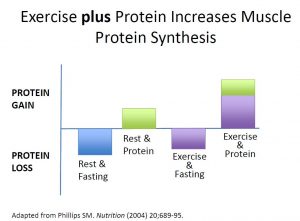
For a long time I did all my workouts in a fasted state; usually they were in the morning and I didn’t feel terribly hungry, so a cup of coffee sufficed to get me into the gym. I put on 35 pounds of muscle doing this, albeit I was pretty skinny when I started, so that was from a low base. I no longer workout fasted, the reason for which I’ll describe below.
The basis for fasted workouts is usually given as greater fat loss. The idea is that with no fuel added right before the workout, your body will need to burn fat to supply the workout with energy. There’s some basis for this – it’s not all broscience – since any protein or carbohydrate in food raises insulin levels. Even small increases in the level of insulin all but abolish lipolysis, the process of fat breakdown. When one is fasting, insulin levels are low, and lipolysis proceeds apace.
This is all very well in theory, but does it work in real life? Some researchers recently tried to answer that question: Body composition changes associated with fasted versus non-fasted aerobic exercise. From the abstract:
It has been hypothesized that performing aerobic exercise after an overnight fast accelerates the loss of body fat. The purpose of this study was to investigate changes in fat mass and fat-free mass following four weeks of volume-equated fasted versus fed aerobic exercise in young women adhering to a hypocaloric diet. Twenty healthy young female volunteers were randomly assigned to 1 of 2 experimental groups: a fasted training (FASTED) group that performed exercise after an overnight fast (n = 10) or a post-prandial training (FED) group that consumed a meal prior to exercise (n = 10). Training consisted of 1 hour of steady-state aerobic exercise performed 3 days per week. … A meal replacement shake was provided either immediately prior to exercise for the FED group or immediately following exercise for the FASTED group, with this nutritional provision carried out under the supervision of a research assistant. Both groups showed a significant loss of weight (P = 0.0005) and fat mass (P = 0.02) from baseline, but no significant between-group differences were noted in any outcome measure. These findings indicate that body composition changes associated with aerobic exercise in conjunction with a hypocaloric diet are similar regardless whether or not an individual is fasted prior to training.
Result: no difference in body composition between fed or fasted workouts. The participants ate a hypocaloric diet, designed for them to lose weight, which they did.
What I wonder is what the effect would be on those not eating a low-calorie diet. That is, bodybuilders are interested in fat loss and muscle gain, not necessarily in losing weight per se. It seems possible to me that fasted workouts would help shed fat, and a post workout meal would help put on muscle, but I have to remain agnostic on that. Another wrinkle is whether resistance training might see different results from aerobic exercise. Also, participants ate a high-carbohydrate diet, and it seems possible that their insulin levels never got low enough, even in the fasted state, to get lost of lipolysis going. Those on a lower carb diet might see different results.
I mentioned above that I no longer work out fasted. One reason is the simple one that the weights are now heavier, the sessions more difficult, and having some food ahead of time seems a good idea. The other reason is the ambiguity of whether a dose of protein such as whey taken around the workout, either before or after, increases muscle protein synthesis and hence hypertrophy. There’s been a ton of research on pre- vs. post-workout protein and how it affects muscle protein synthesis. For example: Timing of postexercise protein intake is important for muscle hypertrophy with resistance training in elderly humans, which found that “early intake of an oral protein supplement after resistance training is important for the development of hypertrophy in skeletal muscle of elderly men in response to resistance training.” Here’s another: Timing of amino acid-carbohydrate ingestion alters anabolic response of muscle to resistance exercise, which concludes that taking protein before a workout increases muscle protein synthesis.
The ambiguity of protein timing was discussed in a recent review: Nutrient timing revisited: is there a post-exercise anabolic window? The authors question whether protein timing is a real effect, or whether just adding more protein to the diet without regard for timing is the real reason for greater hypertrophy.
However, when one is in the process of weightlifting, muscle is broken down, and all the more so if there are no amino acids from protein circulating in the bloodstream. So, to protect my muscles from breakdown, and to encourage hypertrophy, I take my protein before my workouts. There’s no guarantee that this will increase hypertrophy – at least that’s what the science says – but it seems to me a particularly good form of insurance that I’m not damaging my muscles to no avail while lifting weights.
That’s what I believe: you should take protein before a workout.

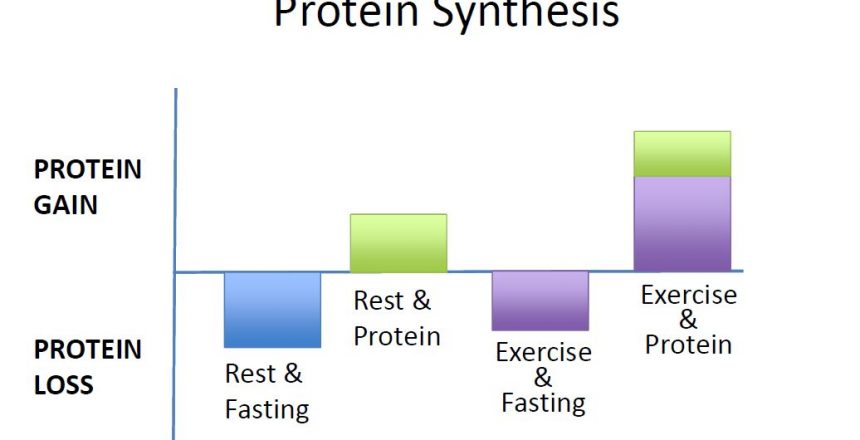



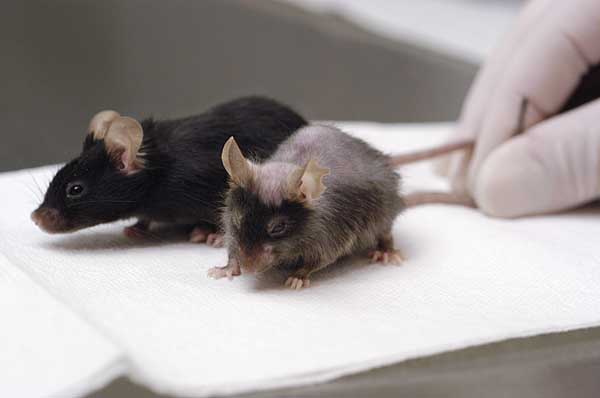
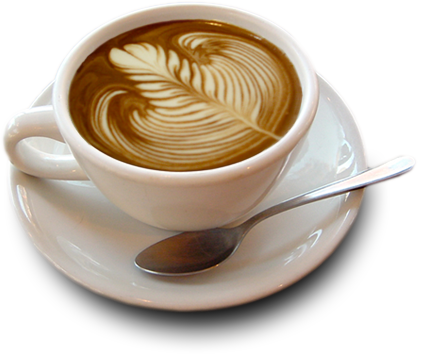


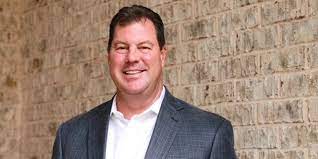




16 Comments
I agonize over this, as I’m older (39) than I was last time (17) I lifted seriously and now have to work harder and smarter to make slower and less impressive gains. But I’m up and out too early to have a proper meal, so I settle for buttered coffee (a fad, I know) with hydrolyzed collagen mixed in for protein and joint care. The consolation is that the effect, good or bad, of meal timing is marginal, whereas the effect of not lifting at all is much, much greater.
I used to do early evening cardio right after work and before dinner, but not in a real fasted state. I switched to IF, then moved to morning fasted cardio. I experienced that the morning cardio broke me through a weight loss plateau. I was running about 30-40 minutes at moderate intensity around 9am, about 2-3 hours post wakeup after drinking my coffee (caffeine is a thermogenic). I also didn’t eat until 11:30 or 12. Most of the morning fasted cardio people (Jay from FabFit40?) suggest that it’s best not to eat immediately afterward. In any case, it can’t hurt.
For my resistance workouts it’s a different story. I’m in a low energy state in the mornings so no way can I get the performance I want. This is true no matter what or when I eat. I find that if I don’t get a good quantity of both carbs and protein 2-5 hours prior to my workout, performance suffers. I generally consume a small amount of carbs (say eating an apple) 30 mins prior to workout + BCAAs, which has also helped my performance a bit.
PS: Yes I know Jay hates running and moving to bicycling by spring for cardio is on the agenda as at age 45 I need to be watching out for injuries.
Some thoughts: Berkhan from Leangains.com recommends 10g BCAAs before a “fasted”workout for protein synthesis and to avoid catabolism similar to your whey idea.
I find that ccarb loading the night before a heavy day at the gym helps with performance. Powerlifters use this trick. Might be the extra glycogen, might be the extra water because you can feel bloated as hell but certainly makes my workouts easier and I hit PRs more often that way.
The study is iffy because it’s women and they don’t do as well as men fasted (anecdotal and experiential) and I’ve noticed a difference in cardio fasted vs strength training fasted. For me, strength is much easier fasted. Interesting post
Thanks, Myth. Those BCAAs will prevent catabolism, but won’t promote anabolism without all the essential amino acids present too. Useful, but just wanted to point that out. I think I may have to try increasing my carbs a bit, but whenever I’ve done it I can’t say I’ve noticed a difference.
After experimenting with fasted training for months, I have come to the conclusion that taking 20-30 grams of whey and 5 grams of creatine both PRE and Post workout is the way to go for older men who are trying to gain strength and muscle. I got this recommendation originally from Jeff Volek, PhD, RD (TNT Diet Plan and several papers). It really works! I don’t think it has much of a negative effect on fatloss either. When I started lifting a 18 months ago I was weak as a kitten – I now have a 400+ LBs squat and dl at 50+ years of age (and I’ll be at 500 lbs by my birthday in August)
Peace
Joe E O
Interesting Joe E O. Did you notice a big difference between your current regimen and the previous? I’m curious about the before and after protein. I may try this.
Yeah…I notice that the weights I put on the bar goes up consistently when I am taking the whey and creatine pre and post workout – I am also able to workout very other day. I think getting this extra workout every week starts to add up over time. There is some science that suggests that older folks need a higher frequency of training as the anabolic window post workout is shorter.
I have tried a couple different protocols
1) Fasted training with NO post workout whey – I used this protocol about 7 years ago and it helped me to lose 100lbs of fat. I just can’t hack it currently as it causes me to crash and burn pretty quickly and I walk around like a zombie the day after training…
2) Fasted training with a Whey/Creatine post-workout drink 1 hour after the end of the workout. This works and I am able to maintain/slowly gain strength. I don’t think the faster training helps burn fat.
3) Pre and Post workout Whey/Creatine drink. This is I have come back to after getting hurt/burntout. I have included my last workout (yesterday below) .
Weigh Sets Reps
Squat 385 3 5
DB Press 60 5 5
Hammer Row 300 5 5
Sumo DL 235 3 5
Floor Press 215 5 5
Curl 65 5 5
Again – I am pretty confident that I can hit 500+ in the squat and dl by August of 2015 (my birthday) . I hit 430 in the squat for multiple set of 3 and 475 in the DL – again multiple sets of 3 reps last month.
Peace
Joe E O
I’ve been going with 20g of whey (in the form of a Muscle Milk) and a bit of creatine pre-workout, and a high-protein meal a half hour afterward. I’ve been reasonably satisfied with my gains, but I’ll have to give your protocol a try.
Interesting. With all due respect, I don’t see how, especially at your age, that you are able to fend off the scourge of cortisol if you are training hard like that “every other day.” I mean, are there any androgens in the mix? I not trying to judge as it’s your business but I just can’t imagine not encountering adrenal fatigue with that kind of strength training schedule at your age (I’m 44) and with the level of weights that you are moving. Do share.
Great article Dennis. It definitely comes down to your goals. There is no way you can gain muscle mass (even using AAS) without full glycogen stores pre and post anaerobic training.
I think a beginner to weight training can gain *SOME MUSCLE* from neurological adaptation when training fasted for a year or so. But once fiber adaptation occurs, that will be curtailed.
Berkhans has good theories and I’m sure a lot of what he posts applies to ‘some people’. But the majority of people need carbs for performance. You can definitely get shredded observing IF while carbing around workouts.
Off topic:
You retweeted this: “#Ibuprofen extends #lifespan in lower organisms by modulating tryptophan import.”
Does that imply that taking tryptophan supplements (for sleep) would decrease lifespan?
No. It appears that what happens is lack of tryptophan is a stress (hormesis) that causes longer life. But adequate or even excess tryptophan won’t necessarily mean shorter life.
OK, P.D. What did I miss? You mention that you don’t wish to damage your muscles while lifting weights but isn’t that the point? Isn’t the idea that you tear your muscles down in order to facilitate hypertrophy? Granted, you’d have to supply your mitochondria the materials it needs at certain times but, outside of exogenous androgens, how else would you spur your musculature to grow without giving it a reason to “get better?”
Possibly based on a misunderstanding. Muscle are both broken down and built up, but this isn’t the same as “damage”. The idea that you need to damage muscles for hypertrophy is out there, but it doesn’t seem necessary for hypertrophy. It may be necessary to recruit satellite cells, in which case it would give better results, but weight-bearing exercise that isn’t enough to cause damage will grow muscle.
In my post, what I’m saying is that in a workout, muscle protein degradation (not necessarily damage) increases, and more so when fasted. eating before a workout decreases the rate of muscle protein degradation.